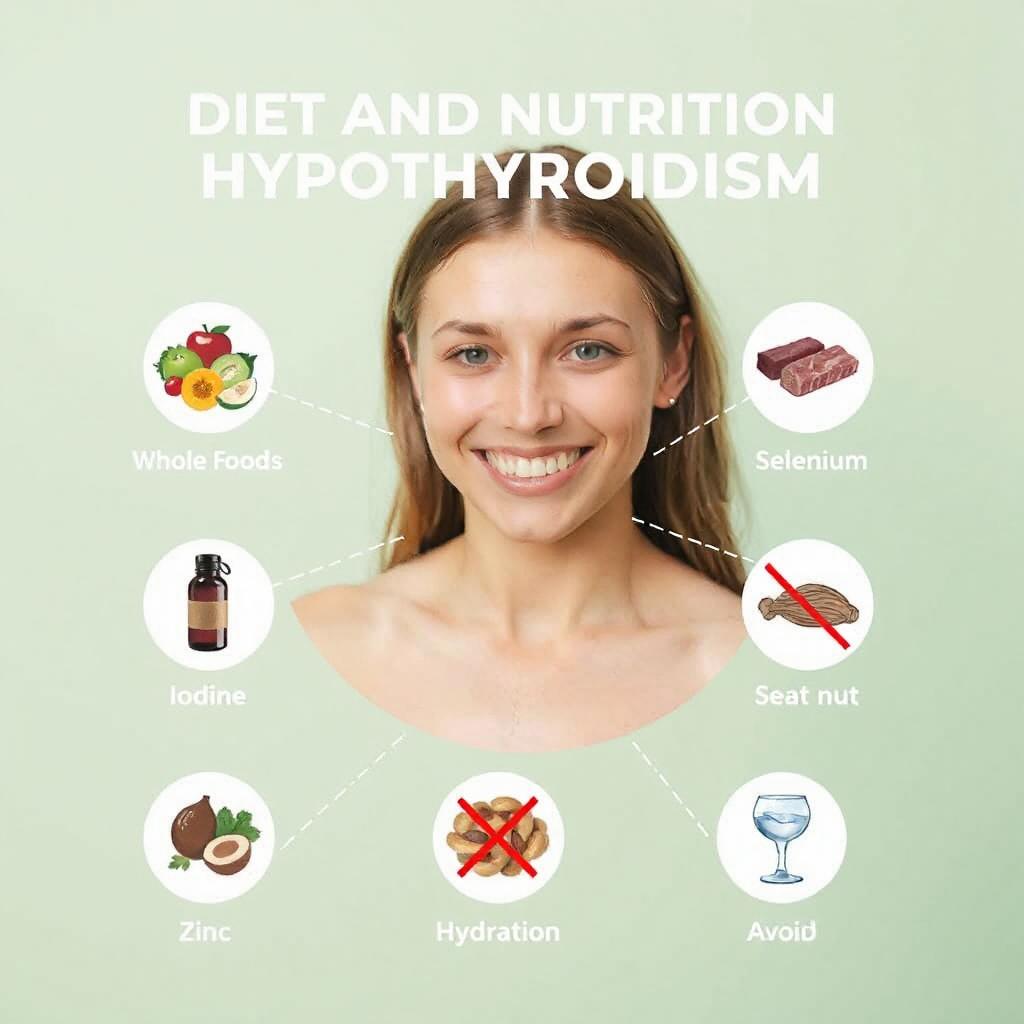Hypothyroidism slows down the body’s metabolism, meaning the foods you eat can make a real difference in how you feel. A balanced, thyroid-friendly diet may help ease symptoms like fatigue, weight gain, and digestive issues. Here are some practical tips on diet and nutrition to support your thyroid health and overall wellness.
1. Focus on Whole Foods and Nutrient Density 🌱
A diet rich in whole, unprocessed foods—like fresh fruits, vegetables, lean proteins, and whole grains—can provide the vitamins and minerals essential for thyroid function. These foods are high in fiber, which supports digestion and can help with weight management.
Pro Tip: Eating nutrient-dense foods can help balance energy and support metabolism. If you’re interested in a customized nutrition plan, our dietitians can help create one that suits your lifestyle.
2. Iodine: An Essential Mineral for Thyroid Health 🧂
Iodine is key to producing thyroid hormones, so it’s important to include iodine-rich foods like seaweed, eggs, and dairy products in your diet. However, excessive iodine intake can also disrupt thyroid function, so balance is essential.
Need Guidance?: We can help you find the right balance. AMAE Clinic offers guidance on maintaining healthy iodine levels.
3. Get Enough Selenium 🌰
Selenium helps activate thyroid hormones so your body can use them effectively. Foods high in selenium, like Brazil nuts, seafood, and sunflower seeds, can support thyroid health and reduce inflammation.
Try This: Add a small handful of Brazil nuts to your diet each week. Book a consultation if you’d like help integrating selenium-rich foods into your routine.
4. Zinc for Hormone Production 🥩
Zinc is another key mineral for thyroid hormone production. Foods like meat, shellfish, legumes, and seeds are great sources of zinc. Including them in your diet can help maintain healthy thyroid function.
Pro Tip: Regularly including zinc-rich foods can make a difference. Chat with our nutrition team for more tips on a thyroid-supportive diet.
5. Vitamin D and Omega-3 Fatty Acids 🐟
Vitamin D supports the immune system, and omega-3 fatty acids can help reduce inflammation. Both of these nutrients are especially beneficial if you have an autoimmune thyroid condition like Hashimoto’s.
Healthy Additions: Add fatty fish, fortified dairy, and sunlight exposure for vitamin D. If you’d like, our team can help you assess your vitamin D and omega-3 needs.
6. Fiber for Digestive Health 🌾
Hypothyroidism can slow digestion, leading to constipation. Eating plenty of fiber from whole grains, fruits, and vegetables can help keep things moving smoothly.
Digestive Support: If constipation is an issue, try adding more fiber gradually. AMAE Clinic can guide you on ways to manage digestive health with hypothyroidism.
7. Stay Hydrated 🚰
Good hydration supports digestion, energy, and overall health. Aim for at least 8 glasses of water a day. Herbal teas can also be a good alternative, especially if you’re sensitive to caffeine.
Hydration Tip: Keeping a water bottle handy can be a simple way to stay on top of hydration. Ask us for more hydration tips that suit your routine.
8. Foods to Limit or Avoid 🚫
While there’s no strict “thyroid diet,” certain foods can interfere with thyroid function if eaten in large amounts. Goitrogens—found in cruciferous vegetables like broccoli and cabbage—can interfere with iodine absorption. Soy products, gluten, and highly processed foods may also be worth limiting if they cause symptoms.
Balanced Approach: Talk with us about adjusting your diet without cutting out essential nutrients. We can help you find the right balance.
9. Regular Mealtimes for Blood Sugar Balance 🕰️
Stable blood sugar is important in managing hypothyroidism symptoms. Eating balanced meals at regular intervals throughout the day can help maintain steady energy levels and prevent fatigue.
Routine Matters: Maintaining regular mealtimes can keep your energy up. Our team at AMAE can help you create a meal plan that fits into your day-to-day life.
AMAE Clinic: Supporting Your Thyroid Health through Nutrition
Eating well for hypothyroidism doesn’t have to be complicated. By making thoughtful food choices, you can support your thyroid health and manage symptoms more effectively. Whether you need help creating a balanced meal plan, understanding supplements, or simply want more guidance, AMAE Clinic is here to help you feel your best every day.
Ready to Begin? Reach out to schedule a nutrition consultation and get started on a thyroid-supportive diet with AMAE Clinic.
